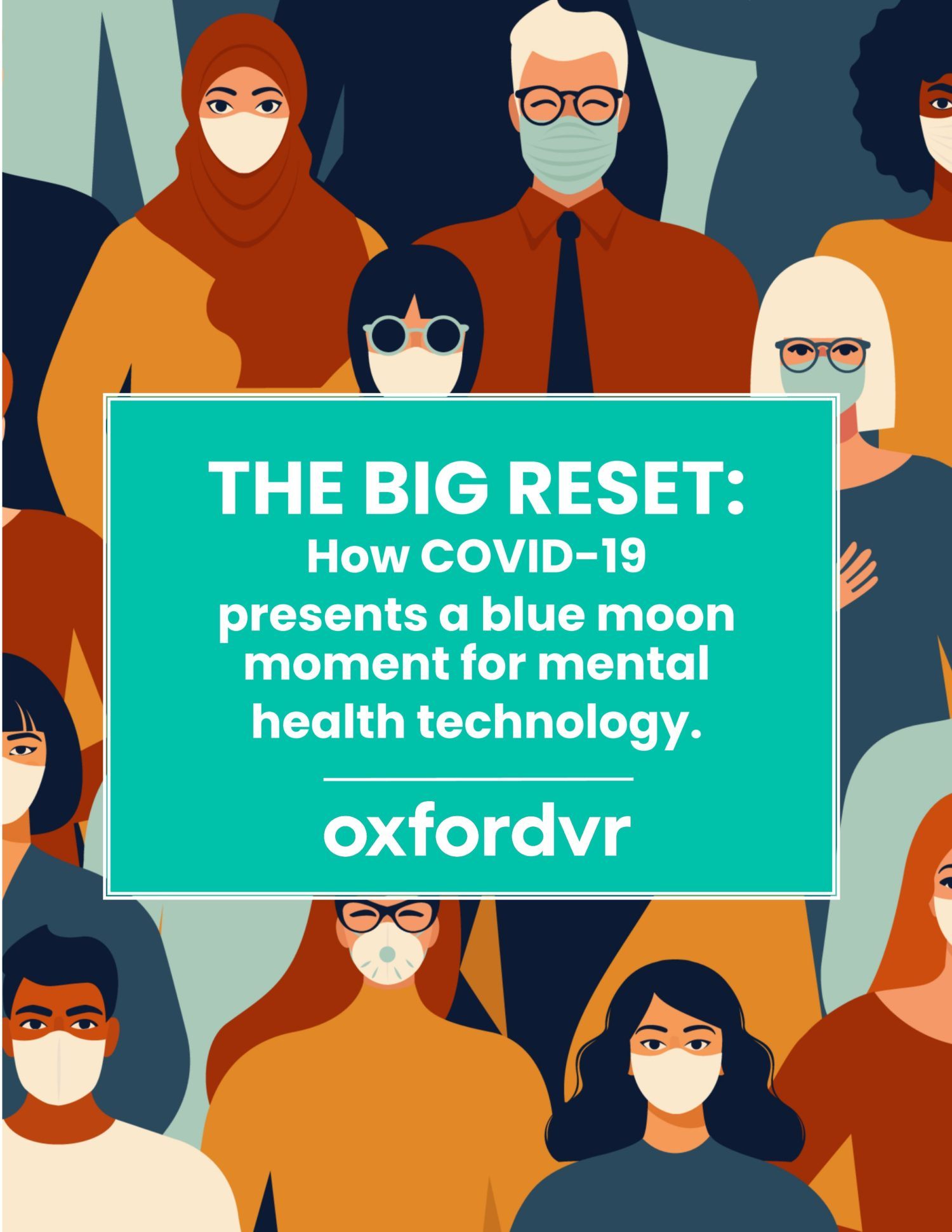
What You Should Know:
– Oxford VR publishes a new position paper ‘The Big Reset: Why COVID-19 presents a blue moon moment for mental health technology.’
– The white paper highlights how the coronavirus crisis has been a greater catalyst for the implementation of telecare in practice, than two decades of many brilliant, but many failed attempts too.
Oxford VR, a provider of evidence-based automated VR therapy has published a new position paper ‘The Big Reset: Why COVID-19 presents a blue moon moment for mental health technology.’ COVID- 19 has put future mental healthcare provision firmly in the spotlight. Healthcare system s across the world are experiencing huge surges in demand. There are the obvious acute mental- health issues: anxiety from job losses, business closures; stress from health concerns and traumatic experiences of bereavement, and depression, fueled by isolation, loneliness, panic, and fear. But what about the impact on mental healthcare in the aftermath and, in the long term?
It’s reasonable to anticipate a rippling effect on future capacity in mental healthcare systems around the world. The paper highlights how the coronavirus crisis has been a greater catalyst for the implementation of telecare in practice, than two decades of many brilliant, but many failed attempts too. According to Barnaby Perks, Co-founding CEO of Oxford VR “For those individuals struggling with a mental health illness, this advance cannot come sooner.” As virtual care becomes the new normal, this paper examines the challenges and opportunities for disruptive technologies in mental health delivery to ensure that adoption is sustainable after the immediate aftershocks.
The white paper emphasizes how because acceleration and adoption of new technologies is happening at an unprecedented pace that the regulatory system will need to keep pace to ensure it become easier to navigate, and the approval process for new devices and therapies should become less time- and resource-intensive and ensure evidence-based solutions. As Matt Vogl pointed out “We don’t want it to become the wild west. No rules is just as bad as too many rules.”
In a matter of days, telecare connected providers with patients in Europe and the United States. In order to continue this telemedicine revolution into the new normal, critical new thinking is required to ensure the right technologies are adopted. In this white paper Oxford VR gathered views from some of the most respected leaders and thinkers in healthcare, behavioral health and teletherapy, and share their perspectives on the critical issues – the challenges ahead, and the opportunities emerging in the new mental healthcare landscape.
Contributors include Walter Greenleaf, Behavioral Neuroscientist, and Medical Technology Developer, Stanford University, Skip Rizzo, Director for Medical VR at The University of Southern California’s Institute for Creative Technologies, Matt Vogl, Executive Director at National Mental Health Innovation Center, David Kessler, Professor of Primary Care, Bristol University, Sam Nordberg, Chief of Behavioral Health at Reliant Medical Group and Brett Atwood, VP, Ventures at United Health Group R&D.
Click here to download the white paper
